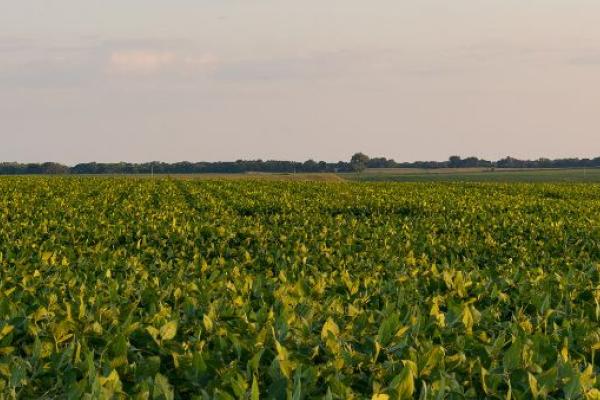Congressman Sorensen Introduces Bipartisan Bill to Ensure Farmers Are Rewarded for Improving Soil Health

The Advancing Research on Agricultural Soil Health Act Would Help Farmers Unlock Rewards for Maintaining Healthy and Resilient Soil by Storing Carbon
Congressmen Eric Sorensen (IL-17) and Mike Lawler (NY-17) introduced their bipartisan Advancing Research on Agricultural Soil Health Act to ensure farmers who improve their soil health through capturing carbon are rewarded. The bipartisan and bicameral bill is a companion to legislation in the Senate that was introduced by Senators Tina Smith (D-MN) and Todd Young (R-IN).
“Our farmers are the backbone of rural Illinois – feeding our families, sustaining our economy, and protecting our natural resources. They are leading the way to a more sustainable future by implementing conservation practices to improve their soil health and resiliency, and they deserve to be recognized and rewarded for their efforts,” said Congressman Sorensen. “But right now, the lack of a national standard for accurately measuring soil carbon makes verifying the amount sequestered a challenge. My bipartisan legislation will change that by requiring the USDA to create a consistent standard so farmers can receive the recognition they have earned.”
“I’m proud to support the Advancing Research on Agricultural Soil Health Act, said Congressman Lawler. “Farmers are doing the hard work of improving soil health and protecting our environment, but they need better tools to measure that progress. This bill will help us develop clear, science-based ways to track soil carbon and make sure farmers are recognized and rewarded for their efforts.”
“Illinois soybean farmers, along with those across the country, are leading the way on soil health,” said Bryan Severs, Illinois Soybean Association Chairman. “The ARASHA will make American agriculture smarter and more resilient.”
“Healthy and resilient agricultural landscapes ensure American producers can generate the foods, fiber, and fuels needed to drive our economy,” said Michele Stockwell, president of Bipartisan Policy Center Action (BPC Action). “What’s more, these soils can store vast quantities of carbon as plants draw CO2 from the air. BPC Action applauds Reps. Eric Sorensen (D-IL) and Mike Lawler’s (R-NY) Advancing Research on Agricultural Soil Health Act, which directs USDA to systematically assess soil carbon across the country. This standardized approach is essential to improving our understanding of our farming landscapes and the vital economic, environmental, and climate benefits they provide.”
“The bipartisan Advancing Research on Agricultural Soil Health Act offers a much-needed blueprint for delivering soil health innovations to US farmers and ranchers," said Daphne Yin, director of policy at Carbon180. "By investing in foundational research on U.S. soil health and carbon stocks, this bill will catalyze novel farmer decision-making tools and science-backed incentives that can help land stewards meet current and emerging environmental and agricultural challenges."
Currently, there is no national standard to accurately measure soil carbon on ag lands. Such data can deepen our knowledge of agriculture’s role in capturing carbon while helping farmers identify optimal practices. This data can also be used to inform a producer’s carbon intensity (CI) score, ensuring they are recognized for their land stewardship and receive premium pricing for their grain.
Specifically, the Advancing Research on Agricultural Soil Health Act would:
Develop consistent and standardized soil carbon measurement methodologies based on the best available science and in consultation with producers, soil carbon scientists, and diverse stakeholder groups.
Leverage the Agriculture and Food Research Initiative (AFRI) to develop new tools for measuring, monitoring, reporting, and verifying (MMRV) emissions and carbon sequestration.
Conduct on farm demonstrations to improve producer understanding and adoption of soil carbon sequestration practices.
Establish a Soil Carbon Inventory and Analysis Network led by the National Resources Conservation Service (NRCS) and the Agricultural Research Service (ARS) to inventory, monitor, and analyze soil carbon and emission changes on agricultural land over time.
Develop modeling tools grounded in direct measurements and the best available science that allow users to estimate changes in soil carbon and emissions resulting from implementing conservation management practices.
The bipartisan legislation is also endorsed by the Illinois Corn Growers Association.
You can read the full text of the bill HERE and additional background HERE.
